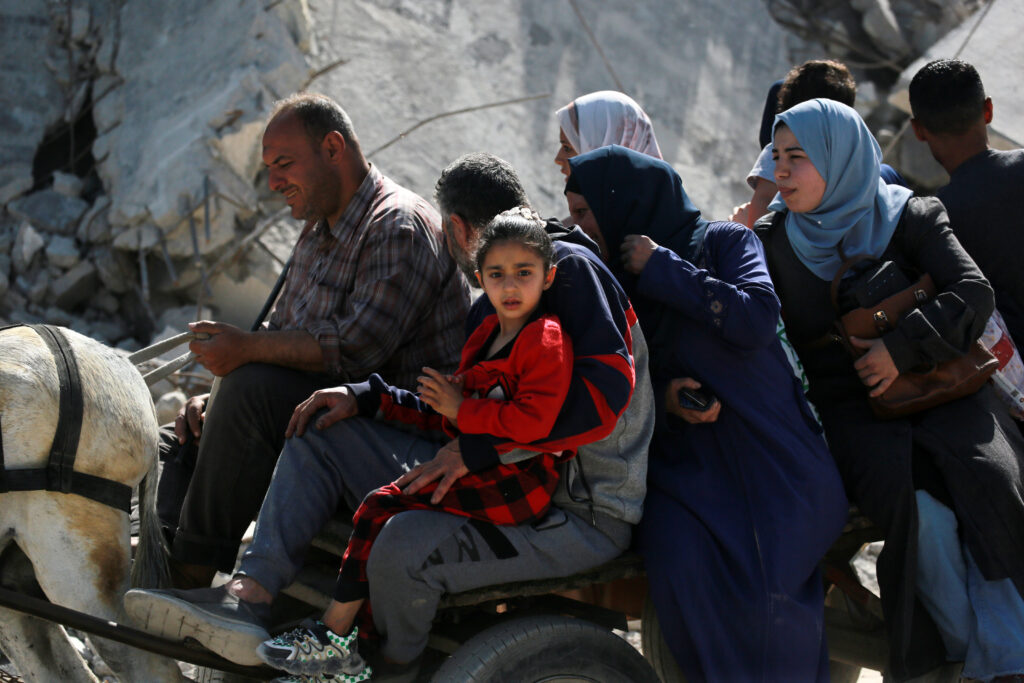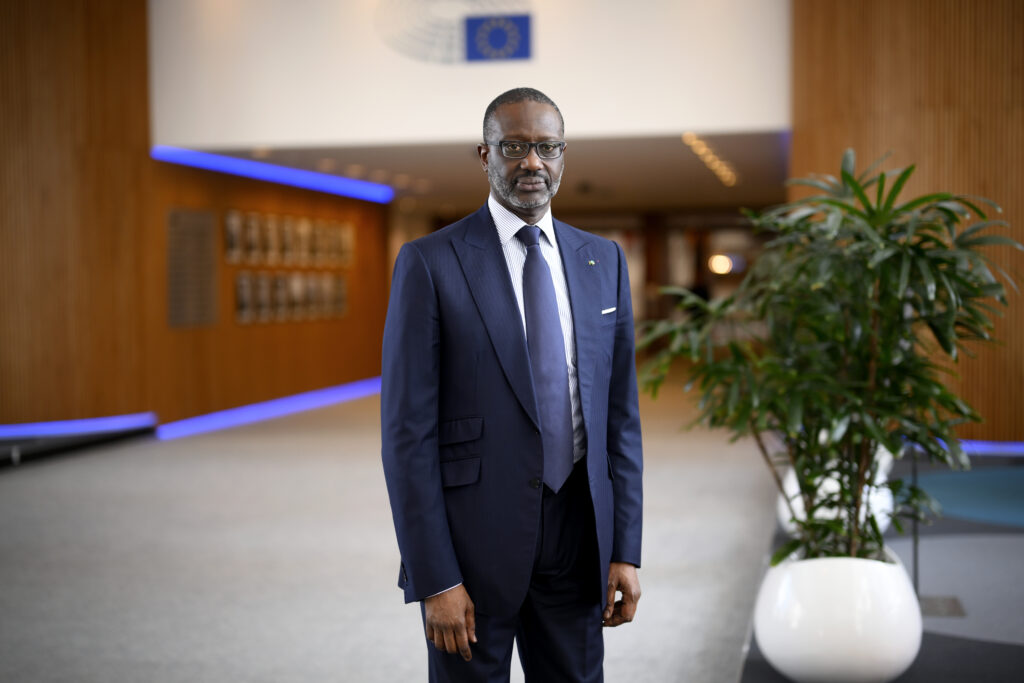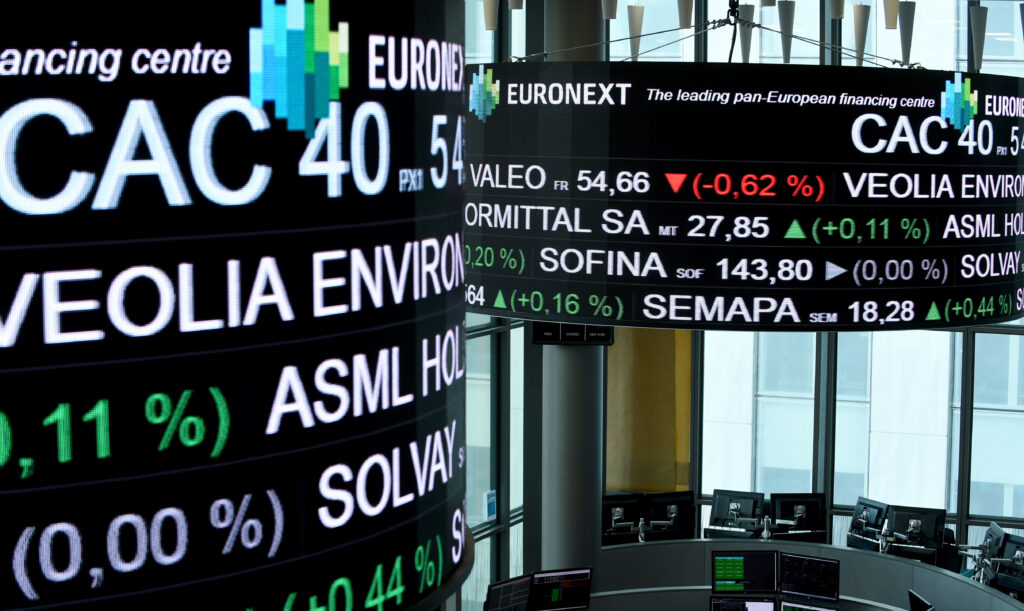UN rights chief warns of ‘ethnic cleansing’ in Gaza
The UN’s rights chief on Friday denounced Israel’s sharp escalation of attacks in Gaza — and an apparent push to permanently displace the population — as amounting to “ethnic cleansing”.”This latest barrage of bombs… and the denial of humanitarian assistance underline that there appears to be a push for a permanent demographic shift in Gaza that is in defiance of international law and is tantamount to ethnic cleansing,” Volker Turk said in a statement.A two-month ceasefire between Israel and Hamas collapsed in March, shortly after Israel reimposed a total blockade on Gaza that aid agencies say has sparked critical food shortages, with famine looming.Israeli media reported Friday that the military had stepped up its offensive in Gaza following government approval of a plan to retake the territory earlier this month, though the army has yet to formally announce its threatened expansion of the campaign. Turk, the United Nations High Commissioner for Human Rights, warned that a clear intensification in attacks this week raised fears the wider Israeli offensive had begun.”We must stop the clock on this madness,” he said, urging all parties, including third states with direct influence, to stop the assault.- ‘Tragic… abhorrent’ -Medical services were already in a state of collapse, even as access to shelter continues to shrink amid displacement orders and destruction, he said.”Families are forced to live in tents under conditions far below standards keeping their human dignity, and extreme hunger is deepening due to the Israeli blockade,” the statement said.Israel cut off aid to Gaza on March 2, a tactic it has said is intended to force concessions from militant group Hamas, which is still holding dozens of Israeli hostages seized in its deadly attack inside Israel on October 7, 2023. The health ministry in Gaza said 2,876 people have been killed since Israel resumed strikes on March 18, taking the war’s overall toll to 53,010.Turk highlighted in particular Israeli strikes that hit two of the largest hospitals in Khan Yunis in southern Gaza, the Nasser Medical Complex and the European Hospital, leaving the latter out of service.”Hospitals are protected at all times – and are even more indispensable during war,” Turk said.”The killing of patients or of people visiting their wounded or sick loved ones, or of emergency workers or other civilians just seeking shelter, is as tragic as it is abhorrent,” he said.”These attacks must cease,” he said.The rights chief insisted that “even if, as Israel says, it was targeting Hamas command centres underground, and even if destroying these structures offered a definite military advantage at the time of the attack, it is bound by international law to ensure that constant care is taken to spare the lives of civilians”.”That’s clearly not the case.”
L’auteur de la tentative de meurtre contre Salman Rushdie condamné à 25 ans de réclusion
Hadi Matar, l’Américano-Libanais qui avait agressé au couteau en 2022 l’écrivain Salman Rushdie, symbole de la liberté d’expression, a été condamné vendredi à 25 ans de réclusion aux Etats-Unis.Hadi Matar, 27 ans, qui a grandi aux Etats-Unis, avait été reconnu coupable en février de tentative de meurtre et agression par un jury, après deux semaines de procès au tribunal de Mayville, dans le nord de l’Etat de New York.Il a été condamné à la peine maximale, soit 25 ans de réclusion, ainsi qu’à sept ans de prison pour avoir blessé Henry Reese, cofondateur de “Pittsburgh Ville Refuge”, un projet d’aide aux écrivains en exil. Il purgera simultanément les deux peines.Salman Rushdie n’assistait pas à cette audience.Le 12 août 2022, Hadi Matar avait lardé de coups de couteau l’auteur des “Versets sataniques”, ouvrage qui avait valu en 1989 à Salman Rushdie une condamnation à mort par l’Iran, qui le jugeait blasphématoire.L’écrivain américano-britannique de 77 ans, d’origine indienne, a perdu l’usage de son oeil droit dans cette attaque, sa pomme d’Adam a été lacérée, son foie et son intestin grêle percés, et de graves lésions nerveuses au bras l’ont laissé paralysé d’une main.L’agression s’était produite devant près d’un millier de personnes lors d’une conférence sur la protection de la liberté des écrivains, dans une paisible région frontalière du Canada. L’auteur avait été sauvé par des spectateurs.Hadi Matar est aussi inculpé devant la justice fédérale américaine d'”acte de terrorisme au nom du Hezbollah”, le mouvement chiite libanais soutenu par l’Iran. Téhéran a nié toute implication dans l’agression.- “Mare de sang” -A la barre du tribunal de Mayville, où il s’était présenté en février avec son oeil droit caché derrière un verre teinté, Salman Rushdie avait notamment raconté s’être vu “mourir” lors de cette attaque.”C’était un coup de couteau dans mon oeil, extrêmement douloureux, après je hurlais à cause de la douleur”, avait-il raconté durant le procès, ajoutant qu’il s’était retrouvé dans une “mare de sang”.L’écrivain avait déjà fait le récit de l’agression dans un livre, “Le couteau”. Hadi Matar avait été arrêté dans la foulée.L’homme, qui a plusieurs fois hurlé des slogans propalestiniens durant son procès, a poignardé l’écrivain une dizaine de fois avec un couteau doté d’une lame de près de 20 centimètres.Quelques jours après l’agression, il avait été interviewé depuis sa prison par le tabloïd New York Post, auquel il avait confié avoir été “surpris” que Salman Rushdie ait survécu.Il n’avait pas dit, en revanche, s’il avait été inspiré par la fatwa lancée en 1989 par l’ayatollah Khomeini, à l’époque le dirigeant de la République islamique d’Iran. Il a également déclaré à la presse qu’il n’avait lu que deux pages des “Versets sataniques”, mais a souligné qu’il reprochait à l’écrivain d’avoir “attaqué l’islam”.Après la fatwa, Salman Rushdie a vécu reclus à Londres durant une décennie, mais depuis une vingtaine d’années il vit relativement normalement à New York.
Ivory Coast opposition leader calls for ‘credible’ voteFri, 16 May 2025 16:21:39 GMT
The leader of Ivory Coast’s main opposition party on Friday called for an “inclusive, transparent and credible” presidential election, although he is barred from standing due to a dispute over his nationality.The west African country must show that it has reached “a sufficient level of political maturity to stop excluding presidential candidates”, Tidjane Thiam said …
Ivory Coast opposition leader calls for ‘credible’ voteFri, 16 May 2025 16:21:39 GMT Read More »
Gaza rescuers say Israeli strikes kill 88 as Hamas makes a plea to lift blockade
Rescuers said Israeli strikes on Gaza killed nearly 90 people on Friday, while Hamas demanded the United States press Israel to lift a sweeping aid blockade in return for a US-Israeli hostage released by the group.In early March, shortly before the collapse of a two-month ceasefire in its war against Hamas, Israel reimposed a total blockade on the Gaza Strip, where aid agencies have warned of critical shortages of everything from food and clean water to fuel and medicines.US President Donald Trump acknowledged on Friday that “a lot of people are starving” in the besieged Palestinian territory.”We’re looking at Gaza. And we’re going to get that taken care of,” Trump told reporters in Abu Dhabi, on a regional tour that excluded key ally Israel.Israel says its decision to cut off aid to Gaza was intended to force concessions from militant group Hamas, which still holds dozens of Israeli hostages seized during the October 7, 2023 attack that sparked the war. Hamas on Monday freed Edan Alexander, the last living hostage with US nationality, after direct engagement with the Trump administration that left Israel sidelined.As part of the understanding with Washington regarding Alexander’s release, senior Hamas official Taher al-Nunu on Friday said the group was “awaiting and expecting the US administration to exert further pressure” on Israel “to open the crossings and allow the immediate entry of humanitarian aid”.Nunu’s remarks come a day after Hamas had warned Trump that Gaza was not “for sale”, responding to the US president again suggesting he could take over the Palestinian territory and turn it into “a freedom zone”.On the ground, Gaza’s civil defence agency said Israeli strikes on Friday killed at least 88 people.Umm Mohammed al-Tatari, 57, told AFP that she was awoken by a pre-dawn attack on northern Gaza.”We were asleep when suddenly everything exploded around us,” she said.”Everyone started running. We saw the destruction with our own eyes. There was blood everywhere, body parts and corpses.””There is no safety. We could die at any moment,” said 33-year-old Ahmed Nasr, also from northern Gaza.At the Indonesian Hospital in Beit Lahia, AFPTV footage showed mourners crying over the bodies of their loved ones.”They were innocent people,” said Mayar Salem. “Only their remains are left… They were my sisters and daughters.”- ‘Historic opportunity’ – Hamas’s October 2023 attack on Israel resulted in the deaths of 1,218 people on the Israeli side, mostly civilians, according to an AFP tally based on official figures.Of the 251 hostages taken during the attack, 57 remain in Gaza, including 34 the military says are dead.The health ministry in Hamas-run Gaza said 2,985 people have been killed since Israel resumed strikes on March 18, taking the war’s overall toll to 53,119 deaths in the Palestinian territory.Israeli media reported Friday that the military had stepped up its offensive in line with a plan approved by the government earlier this month, though there has not been any formal announcement of an expanded campaign.The military said in a statement on Friday that its forces had “struck over 150 terror targets throughout the Gaza Strip” in 24 hours.The main Israeli campaign group representing the families of hostages said that by extending the fighting, Prime Minister Benjamin Netanyahu was missing an “historic opportunity” to get their loved ones out through diplomacy.Another group representing hostage relatives, the Tivka Forum, called for more military pressure “coordinated with diplomatic pressure, a complete siege, cutting off water and electricity”.For weeks, UN agencies have warned of severe shortages in Gaza.The 46-member Council of Europe on Friday said the territory was suffering from a “deliberate starvation”.Senior Hamas official Basem Naim has said the entry of aid into Gaza was “the minimum requirement for a conducive and constructive negotiation environment”.The Gaza Humanitarian Foundation, a US-supported NGO, has said it will begin distributing humanitarian aid in Gaza this month after talks with Israeli officials.But the United Nations on Thursday ruled out involvement with the initiative, citing concerns about “impartiality, neutrality (and) independence”.
Salman Rushdie assailant sentenced to 25 years in prison
An American-Lebanese man was sentenced to 25 years in prison on Friday for trying to kill novelist Salman Rushdie with a knife at a New York cultural center in 2022.Hadi Matar, 27, was convicted in February of attempted murder and assault for the stabbing, which left Rushdie blind in one eye.Matar received the maximum sentence of 25 years in Chautauqua County Court for the attack on Rushdie and seven years for assault on the moderator of the speaking event, who was also on stage.Judge David Foley ordered the sentences to run concurrently.The British-American author did not attend the sentencing but submitted a victim impact statement.Matar also faces separate federal terrorism charges that carry a maximum penalty of life in prison.Video of the attack was played during the trial and showed Matar rushing the stage and plunging a knife into Rushdie. “It was a stab wound in my eye, intensely painful, after that I was screaming because of the pain,” Rushdie told jurors, adding that he was left in a “lake of blood.”Matar — who shouted pro-Palestinian slogans on several occasions during the trial — stabbed Rushdie about 10 times with a six-inch blade.He previously told media he had only read two pages of Rushdie’s “The Satanic Verses,” but believed the author had “attacked Islam.”Matar’s lawyers had sought to prevent witnesses from characterizing Rushdie as a victim of persecution following Iran’s 1989 fatwa calling for his murder over supposed blasphemy in the novel.Iran has denied any link to the attacker and said only Rushdie was to blame for the incident.- Life-threatening injuries -The optical nerve of Rushdie’s right eye was severed in the attack.His Adam’s apple was lacerated, his liver and small bowel penetrated, and he became paralyzed in one hand after suffering severe nerve damage to his arm.Rushdie was rescued from Matar by bystanders. Last year, he published a memoir called “Knife” in which he recounted the near-death experience.His publisher announced in March that “The Eleventh Hour,” a collection of short stories examining themes and places of interest to Rushdie, will be released on November 4, 2025.Rushdie, who was born in Mumbai but moved to England as a boy, was propelled into the spotlight with his second novel “Midnight’s Children” (1981), which won Britain’s prestigious Booker Prize for its portrayal of post-independence India.But “The Satanic Verses” brought him far greater, mostly unwelcome, attention.Rushdie became the center of a fierce tug-of-war between free speech advocates and those who insisted that insulting religion, particularly Islam, was unacceptable under any circumstance.Books and bookshops were torched, his Japanese translator was murdered and his Norwegian publisher was shot several times.Rushdie lived in seclusion in London for a decade after the 1989 fatwa, but for the past 20 years — until the attack — he lived relatively normally in New York.
La Bourse de Paris termine en légère hausse
La Bourse de Paris a terminé en légère hausse vendredi, dans l’attente des prochaines étapes de la confrontation commerciale entre les Etats-Unis et la Chine, après une trêve saluée par les investisseurs cette semaine.Le CAC 40 a pris 0,42%, en hausse de 33,22 points, à 7.886,69 points. Sur l’ensemble de la semaine, l’indice parisien vedette a pris 1,85%.A l’issue de négociations le week-end dernier en Suisse, Pékin et Washington avaient annoncé une suspension de l’essentiel de leurs droits de douane punitifs décidés dans la foulée de l’offensive commerciale protectionniste lancée par Donald Trump début avril.Dans le cadre de cet accord, les États-Unis ont accepté d’abaisser leurs surtaxes douanières sur les produits chinois à 30%, tandis que la Chine réduira les siennes à 10% sur les biens américains.Ce résultat a suscité l’optimisme sur les marchés cette semaine.Le 2 avril, le président américain Donald Trump avait imposé au monde entier des droits de douane massifs sur les biens importés par les Etats-Unis, dont une taxe plancher de 10%, avant de faire en grande partie marche arrière devant le bouleversement de l’ordre économique international.”Plus généralement, le scénario d’une récession aux Etats-Unis (en raison de cette politique NDLR) s’éloigne de l’esprit des investisseurs”, explique à l’AFP David Kruk, responsable du trading de La Financière de l’Échiquier. Toutefois, il “subsiste toujours une immense incertitude” quant à “l’effet économique des droits de douane” restants, relève Florian Ielpo, responsable de la recherche macroéconomique pour Lombard Odier IM. Côté obligataire, l’emprunt à dix ans français a atteint 3,26%, contre 3,29% la veille en clôture.Eutelsat sanctionnéL’opérateur européen de satellites Eutelsat a fait état d’un léger recul de ses recettes au troisième trimestre de son exercice décalé 2024-2025, mais confirme ses objectifs annuels. Son titre a reculé de 6,36% à 3,74 euros. Depuis le 1er janvier, il a cependant gagné environ 62%.Forsee dévisseForsee, entreprise française spécialisée des systèmes de batteries intelligentes pour véhicules électriques commerciaux et industriels, a annoncé réviser à la baisse ses objectifs financiers pour l’année en cours, faisant chuter le titre de 20,14% à 0,56 euros.Le directeur général d’Alstom sur le départAlstom (-1,61% à 19,20 euros) a indiqué vendredi que son directeur général Henri Poupart-Lafarge ne solliciterait pas de quatrième mandat à l’issue de son mandat actuel, qui se termine au printemps 2027. Le quinquagénaire, dont les raisons du départ ne sont pas mentionnées, conserve la direction générale du groupe ferroviaire “jusqu’à la nomination de son successeur”.
Ukraine et Russie s’accordent sur un échange de prisonniers, pas sur une trêve
Réunis vendredi à Istanbul pour leurs premiers pourparlers de paix depuis le printemps 2022, Russes et Ukrainiens ont discuté d’une rencontre Zelensky-Poutine, se sont mis d’accord sur un échange important de prisonniers mais pas sur un cessez-le-feu, pourtant réclamé par Kiev, ne faisant ainsi que peu de progrès vers une résolution complète du conflit.Si le négociateur en chef russe Vladimir Medinski s’est dit “satisfait” et prêt “à poursuivre les contacts” avec l’Ukraine après ces pourparlers très attendus, la partie ukrainienne a, elle, accusé Moscou d’avoir formulé des demandes territoriales “inacceptables”.En l’absence des présidents Volodymyr Zelensky et Vladimir Poutine, qui a ordonné à son armée d’envahir l’Ukraine le 24 février 2022 et qui n’a pas fait le déplacement en Turquie, les espoirs de progrès substantiels étaient minces.Les deux délégations, menées par le ministre de la Défense côté ukrainien et par M. Medinski, un conseiller présidentiel de second plan, côté russe, ont échangé pendant environ 1H40, entourées des médiateurs turcs, au palais de Dolmabahçe. La rencontre s’est soldée sans annonce de cessez-le-feu, pourtant “la priorité” affichée par Kiev et ses alliés.Les deux camps doivent désormais “présenter” et “détailler” leur “vision” d’une telle trêve, a précisé le négociateur russe Vladimir Medinski lors d’une brève allocution à la presse.- Échange “massif” de prisonniers -Ukrainiens et Russes ont toutefois annoncé s’être mis d’accord pour un échange “massif” de prisonniers, comme l’a dit M. Medinski, “à raison de 1.000 contre 1.000”, “dans les prochains jours”. Cette “accord” a été salué par le chef de la délégation ukrainienne, Roustem Oumerov.MM. Oumerov et Medinski ont également précisé que la partie ukrainienne avait évoqué une éventuelle rencontre entre les présidents Volodymyr Zelensky et Vladimir Poutine –ce qui serait une première depuis le début de l’invasion russe–, le négociateur russe indiquant simplement que Moscou avait a “pris note de cette demande”. Cela doit être “la prochaine étape”, a martelé de son côté le négociateur ukrainien face à la presse lors d’une brève intervention.Vladimir Poutine avait pourtant refusé ces derniers jours de rencontrer son homologue ukrainien en Turquie, malgré l’offre de ce dernier après l’annonce du président russe de ces pourparlers directs.Côté ukrainien justement, une source diplomatique interrogée par l’AFP, a estimé que les négociateurs russes ont “présenté des demandes inacceptables qui vont au-delà de ce qui a été discuté avant la réunion”, dont le retrait des forces de Kiev de “vastes parties du territoire” ukrainien, avant l’instauration du cessez-le-feu réclamé par l’Ukraine et ses alliés.Face aux journalistes, Gueorgiï Tykhy, le porte-parole de la diplomatie ukrainienne, a assuré que l’équipe de Kiev avait toutefois su garder “son calme” lors des discussions.Le négociateur russe, Vladimir Medinski, avait au préalable indiqué que Moscou voulait discuter des “causes profondes” du conflit et considérait ces pourparlers comme “la suite” de ceux, avortés en 2022 et aux cours desquels les Russes avaient campé sur ces positions maximalistes, inacceptables pour Kiev et ses alliés.Les deux délégations sont parties du lieu de rencontre à Istanbul dans des vans noirs, selon un journaliste de l’AFP, et l’équipe ukrainienne quittera Istanbul “aujourd’hui”, a précisé une source en son sein.- “Réaction forte” -En déplacement en Albanie pour un sommet européen, le président ukrainien Volodymyr Zelensky a appelé ses alliés à “une réaction forte” et des “sanctions” contre Moscou en cas d’échec des discussions.Le chef de l’État français Emmanuel Macron a jugé “inacceptable” que la Russie n’ait pas répondu à l’appel de trêve, tandis que le le chancelier Friedrich Merz s’est félicité de la tenue même des négociations, un “premier signal, tout petit mais positif”.Les dirigeants ukrainien, allemand, français, britannique et polonais ont ensuite échangé au téléphone avec le président américain Donald Trump, qui pousse pour un arrêt des combats.Car dans cet intense ballet diplomatique, le locataire de la Maison Blanche avait assuré la veille être prêt à rencontrer M. Poutine “dès qu’il sera possible d’organiser” un sommet, sans quoi “rien ne se passera” concernant le règlement du conflit.Une telle rencontre est “certainement nécessaire”, a acquiescé vendredi le Kremlin.Le week-end dernier, Vladimir Poutine avait surpris en proposant des négociations directes. Mais, mis au défi par Volodymyr Zelensky de se rendre à Istanbul pour négocier avec lui, le président russe n’a pas fait le déplacement.Les Européens et Kiev avaient réclamé un cessez-le-feu préalable avant toute discussion entre Kiev et Moscou. Une demande rejetée par M. Poutine, au motif qu’une trêve prolongée permettrait à l’armée ukrainienne de se renforcer en recevant des armes occidentales, alors que les soldats russes ont l’avantage sur le front et occupent toujours près des 20% du territoire ukrainien.bur-ant-rbj-pop/
Ukraine et Russie s’accordent sur un échange de prisonniers, pas sur une trêve
Réunis vendredi à Istanbul pour leurs premiers pourparlers de paix depuis le printemps 2022, Russes et Ukrainiens ont discuté d’une rencontre Zelensky-Poutine, se sont mis d’accord sur un échange important de prisonniers mais pas sur un cessez-le-feu, pourtant réclamé par Kiev, ne faisant ainsi que peu de progrès vers une résolution complète du conflit.Si le négociateur en chef russe Vladimir Medinski s’est dit “satisfait” et prêt “à poursuivre les contacts” avec l’Ukraine après ces pourparlers très attendus, la partie ukrainienne a, elle, accusé Moscou d’avoir formulé des demandes territoriales “inacceptables”.En l’absence des présidents Volodymyr Zelensky et Vladimir Poutine, qui a ordonné à son armée d’envahir l’Ukraine le 24 février 2022 et qui n’a pas fait le déplacement en Turquie, les espoirs de progrès substantiels étaient minces.Les deux délégations, menées par le ministre de la Défense côté ukrainien et par M. Medinski, un conseiller présidentiel de second plan, côté russe, ont échangé pendant environ 1H40, entourées des médiateurs turcs, au palais de Dolmabahçe. La rencontre s’est soldée sans annonce de cessez-le-feu, pourtant “la priorité” affichée par Kiev et ses alliés.Les deux camps doivent désormais “présenter” et “détailler” leur “vision” d’une telle trêve, a précisé le négociateur russe Vladimir Medinski lors d’une brève allocution à la presse.- Échange “massif” de prisonniers -Ukrainiens et Russes ont toutefois annoncé s’être mis d’accord pour un échange “massif” de prisonniers, comme l’a dit M. Medinski, “à raison de 1.000 contre 1.000”, “dans les prochains jours”. Cette “accord” a été salué par le chef de la délégation ukrainienne, Roustem Oumerov.MM. Oumerov et Medinski ont également précisé que la partie ukrainienne avait évoqué une éventuelle rencontre entre les présidents Volodymyr Zelensky et Vladimir Poutine –ce qui serait une première depuis le début de l’invasion russe–, le négociateur russe indiquant simplement que Moscou avait a “pris note de cette demande”. Cela doit être “la prochaine étape”, a martelé de son côté le négociateur ukrainien face à la presse lors d’une brève intervention.Vladimir Poutine avait pourtant refusé ces derniers jours de rencontrer son homologue ukrainien en Turquie, malgré l’offre de ce dernier après l’annonce du président russe de ces pourparlers directs.Côté ukrainien justement, une source diplomatique interrogée par l’AFP, a estimé que les négociateurs russes ont “présenté des demandes inacceptables qui vont au-delà de ce qui a été discuté avant la réunion”, dont le retrait des forces de Kiev de “vastes parties du territoire” ukrainien, avant l’instauration du cessez-le-feu réclamé par l’Ukraine et ses alliés.Face aux journalistes, Gueorgiï Tykhy, le porte-parole de la diplomatie ukrainienne, a assuré que l’équipe de Kiev avait toutefois su garder “son calme” lors des discussions.Le négociateur russe, Vladimir Medinski, avait au préalable indiqué que Moscou voulait discuter des “causes profondes” du conflit et considérait ces pourparlers comme “la suite” de ceux, avortés en 2022 et aux cours desquels les Russes avaient campé sur ces positions maximalistes, inacceptables pour Kiev et ses alliés.Les deux délégations sont parties du lieu de rencontre à Istanbul dans des vans noirs, selon un journaliste de l’AFP, et l’équipe ukrainienne quittera Istanbul “aujourd’hui”, a précisé une source en son sein.- “Réaction forte” -En déplacement en Albanie pour un sommet européen, le président ukrainien Volodymyr Zelensky a appelé ses alliés à “une réaction forte” et des “sanctions” contre Moscou en cas d’échec des discussions.Le chef de l’État français Emmanuel Macron a jugé “inacceptable” que la Russie n’ait pas répondu à l’appel de trêve, tandis que le le chancelier Friedrich Merz s’est félicité de la tenue même des négociations, un “premier signal, tout petit mais positif”.Les dirigeants ukrainien, allemand, français, britannique et polonais ont ensuite échangé au téléphone avec le président américain Donald Trump, qui pousse pour un arrêt des combats.Car dans cet intense ballet diplomatique, le locataire de la Maison Blanche avait assuré la veille être prêt à rencontrer M. Poutine “dès qu’il sera possible d’organiser” un sommet, sans quoi “rien ne se passera” concernant le règlement du conflit.Une telle rencontre est “certainement nécessaire”, a acquiescé vendredi le Kremlin.Le week-end dernier, Vladimir Poutine avait surpris en proposant des négociations directes. Mais, mis au défi par Volodymyr Zelensky de se rendre à Istanbul pour négocier avec lui, le président russe n’a pas fait le déplacement.Les Européens et Kiev avaient réclamé un cessez-le-feu préalable avant toute discussion entre Kiev et Moscou. Une demande rejetée par M. Poutine, au motif qu’une trêve prolongée permettrait à l’armée ukrainienne de se renforcer en recevant des armes occidentales, alors que les soldats russes ont l’avantage sur le front et occupent toujours près des 20% du territoire ukrainien.bur-ant-rbj-pop/








